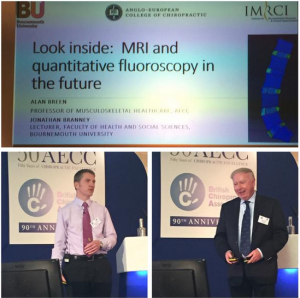In post-war societies such as in the Western Balkans, war monuments may serve to preserve a single narrative of the past. Sometime the intention is to shape future generations’ understanding of conflict, thereby perpetuating militant potentials and societal divisions. But how do young visitors really experience such war monuments? Our fusion-funded project aims to foster conflict transformation (reconciliation) by facilitating young people’s engagement with a plurality of narratives while simultaneously nurturing empathy and recognition of the cultural heritage of war via contemporary gaming technology.
BU’s fusion approach encouraged me, a Balkan specialist and social anthropologist, to seek collaboration across faculties with Dr Avital Biran (‘dark tourism’/FM); Dr Melanie Klinkner (‘transitional justice’/ FMC); and Assoc. Prof. Feng Tian (‘gaming’/ FST). The new fusion-funded project is directly related to our Conflict Transformation Studies Team’s contribution to a major European Union Horizon 2020 bid: a working package on enhancing visitors’ perception and consumption of memorials via gamification, submitted in May 2015 (Reflective Societies, RED 8756).
The team presented its overarching research concept at BU’s Interdisciplinary Week on 12 May with our interactive session on Transforming conflict after war: memory, heritage and digital media. With support of two consecutive Undergraduate Research Assistants, a social anthropological spin-off exercise entitled Reconciliation-in-Practice was then conducted at the Festival of Learning. During the sessions, to which also Wendy Cutts (FHSS) contributed, we challenged participants’ assumptions about the ease with which reconciliation expectations can be exported to countries of Western geo-political interest after war and conflict.
This fusion-funded sequel aims to co-opt interested student from different disciplines into the process of story line development and game design based on post-war memory at selected sites in Kosovo. As part of FiF strand Co-creation and Co-production, collaborations will not just include students and staff from BU’s four faculties but also external stakeholders in post-war Kosovo. We hope to include local students and colleagues of University of Prishtina, Human Rights activists, the British Council, site managers and artists.
Pending ethics approval and faculty support, our aim is – with help of the creative abilities of all involved students and partners – to explore the potentials of ‘gaming’ for education and enhancing visitors’ experience at heritage sites. We plan to, firstly, research the challenges associated with contested memorials in Kosovo; secondly, develop ideas for a story-line for gaming to promote tolerance and understanding; thirdly, explore the possibilities of designing a ‘serious game’; and, finally, under the leadership of Feng Tian, devise a Game Development Document (GDD) which may serve as a blue print for the application of gaming at post-conflict sites.
Dr Stephanie Schwandner-Sievers
Faculty of Health & Social Sciences
sssievers@bournemouth.ac.uk






![InnovateUK_LogoA_Interim_RGBx320govuk[1]](http://blogs.bournemouth.ac.uk/research/files/2014/12/InnovateUK_LogoA_Interim_RGBx320govuk11-300x90.jpg)
















 Nursing Research REF Impact in Nepal
Nursing Research REF Impact in Nepal Fourth INRC Symposium: From Clinical Applications to Neuro-Inspired Computation
Fourth INRC Symposium: From Clinical Applications to Neuro-Inspired Computation ESRC Festival of Social Science 2025 – Reflecting back and looking ahead to 2026
ESRC Festival of Social Science 2025 – Reflecting back and looking ahead to 2026 3C Event: Research Culture, Community & Cookies – Tuesday 13 January 10-11am
3C Event: Research Culture, Community & Cookies – Tuesday 13 January 10-11am Dr. Chloe Casey on Sky News
Dr. Chloe Casey on Sky News ECR Funding Open Call: Research Culture & Community Grant – Application Deadline Friday 12 December
ECR Funding Open Call: Research Culture & Community Grant – Application Deadline Friday 12 December MSCA Postdoctoral Fellowships 2025 Call
MSCA Postdoctoral Fellowships 2025 Call ERC Advanced Grant 2025 Webinar
ERC Advanced Grant 2025 Webinar Horizon Europe Work Programme 2025 Published
Horizon Europe Work Programme 2025 Published Update on UKRO services
Update on UKRO services European research project exploring use of ‘virtual twins’ to better manage metabolic associated fatty liver disease
European research project exploring use of ‘virtual twins’ to better manage metabolic associated fatty liver disease